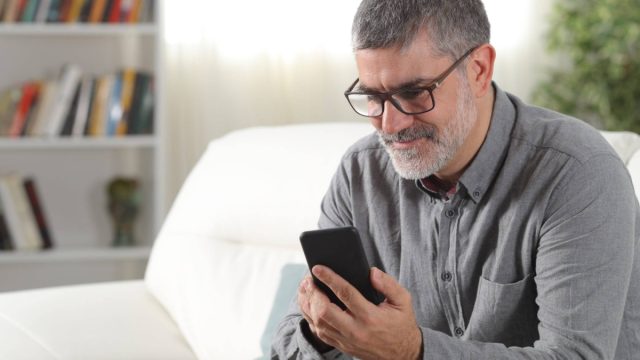In our rapidly advancing digital age, the role of technology in healthcare has expanded beyond traditional boundaries. One notable area experiencing a transformation is caregiving, where mobile apps designed for caregivers are becoming integral tools. These applications not only streamline tasks but also play a pivotal role in enhancing communication among caregivers, clients, and their families.
The Evolution of Caregiving in the Digital Age
Contents [show]
Gone are the days when caregiving relied solely on pen-and-paper documentation and phone calls. The digital age has ushered in a new era, where caregivers leverage technology to provide more efficient and personalized care. This shift reflects a broader trend in healthcare, emphasizing the integration of digital solutions for improved outcomes. The right caregiver mobile app will help healthcare workers to unlock levels of efficiency they never thought was possible but this will only be the case if implemented and used effectively.
Key Features of Caregiver Mobile Apps
Messaging
One of the fundamental features of caregiver mobile apps is messaging functionality. This allows real-time communication between caregivers, clients, and family members. Instant updates and the ability to ask questions or provide feedback contribute to a more connected and responsive caregiving environment.
Scheduling
Efficient scheduling is crucial in the caregiving landscape. Mobile apps enable caregivers to organize shifts, appointments, and tasks seamlessly. The scheduling feature ensures that all team members are on the same page, reducing the risk of misunderstandings and missed appointments.
Health Tracking
Keeping track of a client’s health status is simplified through health tracking features. Caregivers can record vital signs, medications, and other relevant information directly within the app. This not only enhances communication between caregivers but also provides a comprehensive overview for better-informed decision-making.
Improving Communication with Clients and Families
Real-time Updates
Caregiver mobile apps facilitate real-time updates on a client’s well-being. Whether it’s medication adherence, mood changes, or any other pertinent information, caregivers can instantly relay updates to concerned family members. This transparency fosters trust and ensures everyone involved is well-informed.
Emergency Alerts
In critical situations, timely communication is paramount. Mobile apps equipped with emergency alert systems enable caregivers to quickly notify family members and healthcare providers, ensuring swift and coordinated responses in urgent scenarios.
Collaboration is at the heart of effective caregiving. Shared care plans within these apps allow caregivers and family members to coordinate efforts seamlessly. Everyone involved can access and contribute to the care plan, fostering a sense of shared responsibility and mutual understanding.
Enhancing Team Collaboration and Management
Shift Scheduling
Efficiently managing caregiving teams is simplified through shift scheduling features. Caregivers can view their schedules, request changes, and stay informed about team rotations. This not only improves communication within the team but also enhances overall operational efficiency.
Task Delegation
Delegating tasks is a breeze with mobile apps designed for caregivers. Care plans can be broken down into specific tasks, and responsibilities can be assigned to different team members. This ensures a more organized approach to caregiving, with clear communication regarding each team member’s role.
Progress Notes
Documenting and sharing progress notes is crucial for continuity of care. Caregiver mobile apps allow for the seamless recording and sharing of progress notes among team members. This ensures that everyone involved in a client’s care is aware of developments, leading to a more coordinated and informed caregiving approach.
Data Security and Privacy in Mobile Caregiving Apps
The integration of technology in caregiving raises valid concerns about data security and privacy. However, developers of caregiver mobile apps prioritize robust security measures. Encryption protocols, secure authentication, and compliance with healthcare data regulations are implemented to safeguard sensitive information, ensuring that privacy remains a top priority.
The Impact of Mobile Apps on Care Quality
The improved communication facilitated by caregiver mobile apps has a direct and positive impact on the quality of care provided. Caregivers can deliver more personalized services, respond promptly to changes in a client’s condition, and collaborate seamlessly with other healthcare professionals involved in the client’s care. The result is an elevated standard of care that prioritizes the well-being and comfort of the individual receiving care.
Conclusion
In conclusion, caregiver mobile apps are not merely tools; they represent a transformative force in the caregiving landscape. By enhancing communication among caregivers, clients, and their families, these applications contribute to a more connected and responsive caregiving ecosystem. As technology continues to evolve, the future holds promising prospects for digital tools in caregiving, promising further improvements in efficiency, collaboration, and, ultimately, the quality of care provided.


